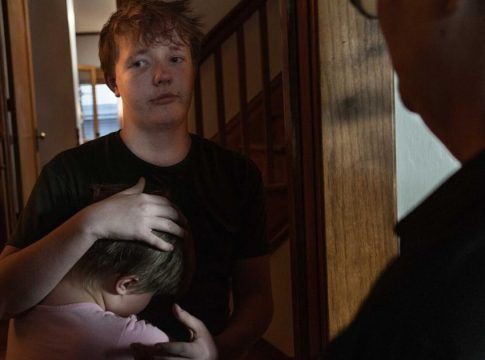Navigating Youth Mental Health: A Call for Care
Rising Mental Health Challenges
The landscape of youth mental health has become increasingly alarming, with escalating rates of depression, anxiety, and suicidal thoughts among children. Reports from the Centers for Disease Control and Prevention indicate that in 2023, nearly 40% of high school students experienced persistent feelings of sadness, and one in ten attempted suicide. Such statistics point to a pressing need for comprehensive mental health support, especially in educational settings.
Tristan Lorenz’s Journey
One poignant example is the journey of 11-year-old Tristan Lorenz, who confronted profound internal struggles exacerbated by bullying and intruding thoughts related to his gender expression. During a critical moment in a Zoom meeting regarding his mental health, Tristan felt an overwhelming sense of despair, leading to moments of self-harm. His experience highlights how crucial supportive environments—like schools—can be in identifying and addressing such challenges.
The Role of Schools in Mental Health
Schools are increasingly at the forefront of addressing mental health crises, serving as safe havens for students. It’s vital to understand that the necessity for mental health resources in schools is more pronounced than ever. However, funding for these essential services is under threat:
- Funding Cuts: Significant federal grant reductions mean many schools are forced to make difficult decisions regarding mental health staffing.
- Staff Shortages: Wisconsin, for instance, faces a dire need for mental health professionals, with existing levels not meeting the demands of students in crisis.
Empowering Support Systems
In Tristan’s case, the coordination among school staff and mental health professionals provided him with a life-saving safety net. Effective communication and a proactive approach allowed his school to activate a safety plan that ultimately guided him to a safe space and, later, the necessary hospital care.
Community Resources and Personal Advocacy
For families facing similar challenges, seeking help is imperative. Engage openly with trusted adults or mental health professionals. Here are some steps that can be taken:
- Talk Openly: Encourage open dialogue about feelings. Telling someone you are struggling can be the first step toward recovery.
- Utilize School Resources: Schools should be viewed as vital partners in mental health. Engage with school counselors or mental health coordinators, like Samantha Phillips, who are there to support students emotionally.
The Importance of Sustainable Funding
Despite the urgent need, the funding landscape for mental health services in schools remains precarious. Recent budget proposals, such as those in Wisconsin, have faced pushback, with funding cuts undermining efforts to provide sufficient mental health resources. It is pivotal for communities and stakeholders to advocate for strong funding to ensure that schools can hire and retain qualified mental health professionals.
Moving Towards Healing
As Tristan’s story illustrates, with the right support and effective coping strategies, recovery is entirely possible. Now at 14, he reflects positively on his journey, emphasized by the skills he learned from therapists. Practicing self-care, identifying emotions, and establishing healthy routines became essential tools in his recovery.
Practical Tips for Mental Wellness
Here are calming strategies that can help anyone struggling with their mental health:
- Breathing Techniques: Slow, deep breathing can help calm anxious thoughts.
- Creative Outlets: Engage in activities like drawing, writing, or any hobbies that spark joy.
- Physical Activity: Regular exercise, even a walk outdoors, can boost mood significantly.
- Social Connection: Keep in touch with friends and family, as shared experiences can alleviate feelings of isolation.
Final Thoughts
Remember, you are not alone in navigating the complexities of mental health, and it is okay to seek help. Advocate for your own needs and help elevate the discourse around mental health in schools and communities. Together, we can create an environment that not only acknowledges these challenges but actively works to address them.

Covers wellness, nutrition, mental health, and daily life tips.
Bio: Talia brings a background in health journalism and holistic living to help readers live better, one tip at a time.

